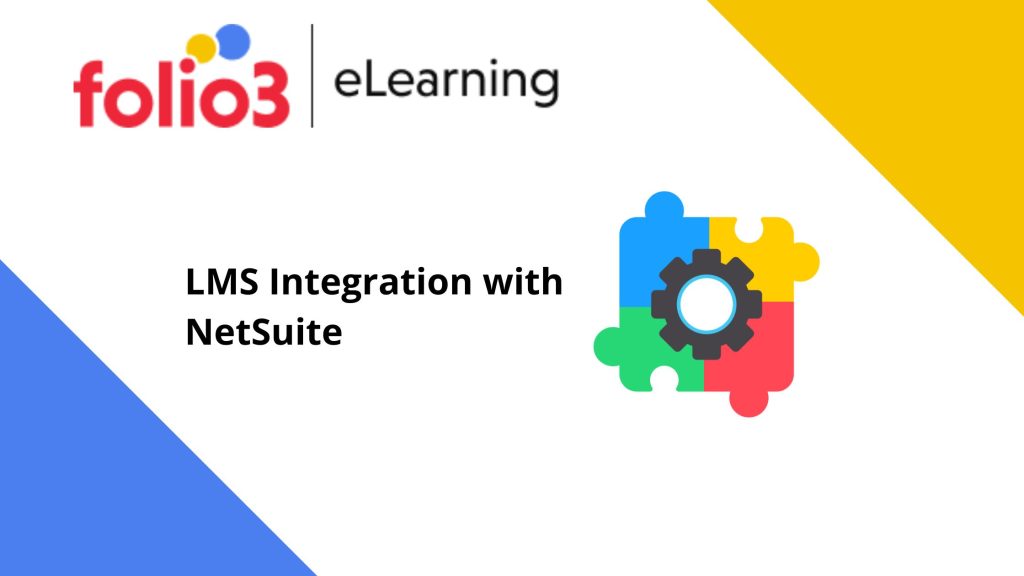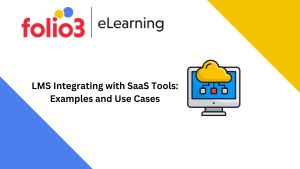
The LMS Integrating with NetSuite
Experienced trainers consider that there are multiple effective training methods and that learners benefit from materials that are tailored to their individual learning preferences. And in professional settings, research from Deloitte shows that in the realities of 21st-century careers, the businesses that emphasize professional development and continuous learning outperform their competitors in terms of innovation, productivity, and financial returns.
However, investing in learning and development can be costly and time-consuming, and in a climate where employee retention is on the decline, managers occasionally wonder whether the cost is worthwhile. Thus, we are exploring the 5 most enriched benefits of LMS integration with NetSuite specifically, in this article. LMS technology strives to provide a resoundingly affirmative response to inquiries regarding the importance of professional growth.

What Is LMS Integration?
A conceptual method of knowledge transfer known as learning management allows students to develop not only a practical understanding of a topic but also a deeper, more essential understanding that they can apply to produce new theories, ideas, or even products. It’s not rote instruction or training that involves “drill, memorizes, and repeat.”
Considering this, LMS integration with NetSuite places the onus of finding and adapting their methods until they are successful in instilling in individuals with deep knowledge, regardless of learning style, on teachers and institutions. The “knowing-doing” gap, or the inability of numerous businesses to act based on their knowledge, is closed by effective learning management.
LMS Integrating with NetSuite – The 5 Value-Added Benefits
Here are 5 most value-adding benefits of LMS integration with NetSuite;
- Benefits # 1 – Supports Blended Learning
Blended courses, also referred to as hybrid or mixed-mode courses in LMS NetSuite, are classes where some of the conventional in-person instruction is replaced by web-based online learning. By utilizing one or more eLearning methods, such as blended learning, you can improve the training process in LMS NetSuite. Employers, clients, and business partners can be trained in a variety of interesting methods thanks to blended learning.
- Benefits # 2 – SSO – Single Sign On
Single Sign On (SSO) is a feature in LMS NetSuite that enables users to sign in to one integrated application and then instantly sign in to another. Regardless of the medium he uses, this is true. From behind the firewall, customers have easy access to the cloud-based LMS. The Lightweight Directory Access Protocol (LDAP) and stored LDAP databases on (directory) servers are usually used to implement SSO between LMS and NetSuite.
- Benefits # 3 – User Synchronization
Users from NetSuite are synced between the two platforms immediately. This feature is very helpful because it instantly updates the user registries on the other platform whenever the user registries on one platform are updated. This NetSuite LMS function is essential in minimizing errors brought on by manually entering data into two portals. Additionally, error-free entries are essential to preserving the worth of the data.
- Benefits # 4 – Course Synchronization
With LMS NetSuite, classes can be seamlessly transferred from one platform to another and then to the ERP. Along with the courses, the ERP platform also receives seamless synchronization of the course completion data. This provides insight into trends that can be tracked by strategically using training data and aids the LMS administrator in keeping track of which employees have finished what training.
- Benefits # 5 – Gamified Training
LMS gaming can make eLearning entertaining and interesting. You also benefit from the fact that your students are eager to engage in online learning. Additionally, you have the choice of giving them points, badges, and other incentives along the way to advancement. LMS gamification improves knowledge recall and retention while making learning fun for students.
Bottom Line
Learning Management System NetSuite uses NetSuite ERP software to spread the right, timely information across your organization. This helps in boosting efficiency and employee satisfaction, improves the standard of your products and services, and decreases downtime. Besides, LMS NetSuite allows you to provide training on time to all parties and with a thorough learning strategy. Additionally, LMS NetSuite enables the customization of learning pathways in accordance with unique educational requirements and learning preferences.
The LMS integration With NetSuite allows blended learning, which includes both conventional and online classroom instruction. Enhancing competency and performance management while taking advantage of statistics and ad hoc reporting features is a further benefit.

LMS integration with NetSuite is the process of connecting a Learning Management System (LMS) with the NetSuite platform, which is an enterprise resource planning (ERP) software used for managing business operations such as financials, customer relationships, and inventory.
Integrating an LMS with NetSuite allows organizations to streamline their training and development processes, reduce manual data entry, and ensure accurate and up-to-date records of employee learning and development.
LMS integration with NetSuite typically involves using an application programming interface (API) to transfer data between the two systems. This allows for the automatic synchronization of training records and other relevant data, such as employee information, course completions, and certifications.
Some benefits of LMS integration with NetSuite include improved efficiency, enhanced accuracy, increased compliance, and better visibility into employee learning and development.
While most LMS platforms can be integrated with NetSuite, some may be more compatible than others. It’s important to work with a provider that has experience with NetSuite integrations and can provide guidance on the best approach for your organization.









